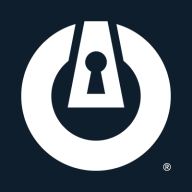

Cynet and ThreatLocker compete in the Zero Trust Endpoint Protection space. Cynet seems to have an edge in terms of broader integrated security features, while ThreatLocker is noted for its user engagement and zero trust enforcement.
Features: Cynet stands out with its threat detection capabilities featuring network and endpoint visibility, autonomous threat management, user behavior analytics, and deception tactics. Meanwhile, ThreatLocker emphasizes its Zero Trust approach with features like learning mode, robust application control, and mobile access request handling.
Room for Improvement: Cynet could enhance mobile support, simplify reporting, improve integration capabilities, and better manage false positives. ThreatLocker's areas for improvement include refining the user interface, streamlining approval workflows, and providing better training to reduce the learning curve.
Ease of Deployment and Customer Service: Cynet offers efficient deployment in hybrid and public cloud settings, with praised 24/7 SOC support. ThreatLocker provides flexible deployment and is known for prompt and knowledgeable technical support, though some users mention a need for faster ticket resolution.
Pricing and ROI: Cynet is recognized for competitive and flexible pricing with a strong ROI, especially due to its comprehensive security functions. ThreatLocker is positively noted for fair pricing, appealing to smaller setups but could incur extra costs for new features. Users value both products highly for the price, with Cynet's features bolstering its appeal.
The return on investment with Cynet is pretty good, as it doesn't require a dedicated resource to manage, being highly automated.
If something were to happen without ThreatLocker, the cost would be huge, and thus, having it is definitely worth it.
The main return on investment is peace of mind, knowing that with ThreatLocker on any endpoint, it will almost always block all malicious code or exploits, even zero-day exploits.
It keeps malware, Trojans, and ransomware at bay.
Their SOC side support, when a threat is detected, is excellent.
My experience with the technical support of Cynet is excellent; they are just one click away.
Based on our needs, they schedule remote sessions and resolve the issues.
They have been very responsive, helpful, and knowledgeable.
I would rate their customer support a ten out of ten.
Their support is world-class.
The solution is highly scalable.
We can deploy Cynet for 50,000 users, and we have deployed it at that scale, with the capability to scale higher to 100,000 users without any challenges.
Cynet is very scalable.
I started off with just the servers, and within a month and a half, I set up the entire company with ThreatLocker.
It seems to primarily operate on the endpoints rather than at a central location pushing out policies.
I would rate it a ten out of ten for scalability.
Within six years of usage, we have not had any issues such as outages or downtime.
For five years, we have not had a problem.
Once deployed, it downloads the policies locally, so even if the computer doesn't have internet, it doesn't matter.
It has been very stable, reliable, and accessible.
There should be more options than deploying solely through group policy, as the assumption that GPO is working isn’t always the case.
Having a DLP feature would also add value.
Integration with local Active Directory, not only Azure AD, is a must.
Controlling the cloud environment, not just endpoints, is crucial.
This is problematic when immediate attention is needed.
Comprehensive 24-hour log monitoring is a valuable enhancement for both business and enterprise-level users.
I think the pricing of Cynet is fair and one of the better options in the market.
The price of Cynet is reasonable considering its features and support.
Cynet does not ask for additional costs for add-on features.
After conversations with other partners, it became clear we underpriced it initially, which caused most of our issues.
We are moving towards the Unified solution, where they basically bundle everything together, providing us better stability with the ability to bring in new product offerings without having to go back to the customer and say, 'This is going to cost you.'
I had a really good deal at the time, and it continues to be cost-effective.
The valuable aspects of Cynet are its EDR and XDR components, which are available at a reasonable price point.
The most effective features of Cynet are its ransomware protection and lateral movement deception.
The SOAR function, deception, and forensics are very useful.
ThreatLocker Zero Trust Endpoint Protection Platform's ability to block access to unauthorized applications has been excellent.
It protects our customers.
The major benefit is fewer breaches overall, as nothing can be run without prior approval. This helps my company protect its data and secure itself effectively.
| Product | Market Share (%) |
|---|---|
| ThreatLocker Zero Trust Endpoint Protection Platform | 0.9% |
| Cynet | 1.3% |
| Other | 97.8% |


| Company Size | Count |
|---|---|
| Small Business | 29 |
| Midsize Enterprise | 7 |
| Large Enterprise | 12 |
| Company Size | Count |
|---|---|
| Small Business | 32 |
| Midsize Enterprise | 4 |
| Large Enterprise | 3 |
Cynet provides comprehensive endpoint protection and advanced threat detection, offering intuitive deployment and monitored support. It ensures real-time visibility and minimal management, enhancing security for diverse and remote teams.
Cynet integrates seamlessly with existing infrastructure, providing an efficient solution for endpoint protection, threat detection, and response. Its automation, scalability, and stability are key benefits. Users benefit from real-time network visibility, ransomware protection, and deception capabilities. Cynet serves as a robust alternative to CrowdStrike, offering a multifaceted approach to security operations, especially in environments needing continuous threat monitoring and zero-day threat management. Areas needing improvement include mobile device support, enhanced reporting, third-party integrations, and AI-based detection.
What are Cynet's most important features?In the financial sector, Cynet's ability to support efficient threat detection and endpoint protection is crucial. Healthcare industries leverage its data protection features for compliance and security. In manufacturing, real-time threat monitoring supports safeguarding intellectual property. Retail sectors benefit from its scalability and minimal management demands, helping secure diverse, distributed locations.
ThreatLocker Zero Trust Endpoint Protection Platform offers robust endpoint security through application control and allowlisting, safeguarding servers and workstations from unauthorized software execution.
ThreatLocker Zero Trust Endpoint Protection Platform provides extensive application control with features like ring-fencing and selective elevation, ensuring meticulous execution management. Offering learning mode and extensive support, it integrates threat detection and activity monitoring to enhance compliance, reduce costs, and bolster cybersecurity through alerts and approvals. Despite its strengths, there are areas for improvement in training flexibility, policy updates, and interface enhancements, along with challenges in handling non-digitally signed software. Deployed across environments, it works well with existing cybersecurity instruments for real-time threat prevention.
What are the top features of ThreatLocker?ThreatLocker Zero Trust Endpoint Protection Platform is widely implemented to safeguard IT infrastructures against unauthorized access and application use. In sectors where data security is paramount, this platform enables users to prevent unauthorized software installations and control device applications, ensuring real-time threat prevention and compliance with industry regulations.
We monitor all Endpoint Protection Platform (EPP) reviews to prevent fraudulent reviews and keep review quality high. We do not post reviews by company employees or direct competitors. We validate each review for authenticity via cross-reference with LinkedIn, and personal follow-up with the reviewer when necessary.